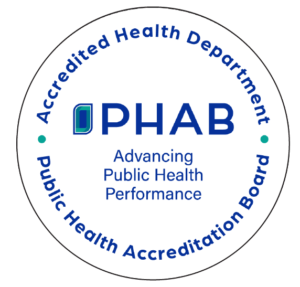Lake County General Health District (LCGHD) is reminding residents to protect themselves from mosquito bites following recent reports of human cases of Eastern Equine encephalitis (EEE) in nearby Michigan and Pennsylvania. Ohio Department of Agriculture has reported three cases of EEE in horses in northeast Ohio.
“This is a serious disease, and the most effective way to prevent your horses from getting EEE is to have the animals vaccinated by a licensed veterinarian,” said Ohio Department of Agriculture State Veterinarian Dr. Tony Forshey. “It is spread through mosquitoes and can also affect people, so taking steps to manage the mosquito population, such as eliminating standing water, will also help prevent EEE and other vector-borne viruses, like West Nile virus.”
According to Bert Mechenbier, Supervisor at LCGHD, “No cases have been reported in Lake County, but prevention of mosquito bites is key.” Mechenbier provided the following tips for homeowners to keep mosquitoes from breeding in your backyard:
- Dispose of tin cans, old tires, buckets, unused plastic swimming pools, plastic covers, or other containers that collect and hold water.
- Keep roof gutters unclogged. Clean gutters in the spring and fall.
- Clean and chlorinate swimming pools, outdoor saunas, and hot tubs. Keep them covered when empty.
- Empty and change the water in bird baths, fountains, wading pools, rain barrels, and potted trays at least once a week, if not more often.
- Make sure children’s toys are not holding water.
- Fill or drain puddles, ditches, and swampy areas, and either remove, drain, or fill tree holes and stumps with mortar.
- Eliminate seepage from cisterns, cesspools, and septic tanks.
- Eliminate standing water around animal watering troughs.
- Irrigate lawns and gardens carefully to prevent water from standing for several days.
LCGHD would also like to advise the following for protection against biting mosquitoes:
- Avoid being outside at dawn/dusk. If you cannot avoid those times, use a repellent.
- Use an insect repellent containing active ingredients that have been registered with the United States Environmental Protection Agency (EPA) for use as repellents applied to skin and clothing. Of the products registered with the EPA, those containing DEET, picaridin, IR3535, and some oil of lemon eucalyptus and para-menthane-diol products provide longer-lasting protection than other products. Use repellents according to label instructions. Insect repellents can be used on pregnant women. EPA does not recommend any additional precautions for repellent use by pregnant or nursing women.
- Most insect repellents can be used on children. Products containing oil of lemon eucalyptus should not to be used on children under the age of three years. Do not allow children to handle or spray insect repellents. When using on children, apply to your own hands first, and then put it on the child. Avoid applying repellent to children’s hands, because children frequently put their hands in their eyes and mouths. EPA does not recommend any additional precautions for using registered repellents on children.
- Repellents containing a higher percentage of the active ingredient typically provide longer-lasting protection. Regardless of what product you use, if you start to get mosquito bites, reapply the repellent according to the label instructions.
- Wash treated skin and clothing after returning indoors.
- Wear light-colored clothing.
- Wear long-sleeved shirts, long pants, and socks if you go outside when mosquitoes are most active (from dusk until dawn).
- Avoid wearing perfume, cologne, and aromatic scents.
- Make sure window and door screens are “bug tight.” Repair or replace torn screens.
- Replace outdoor lights with yellow “bug lights.”
The LCGHD Mosquito Control Program is a locally funded program to protect our residents from mosquito-borne disease. The Mosquito Control Program tracks the mosquito population, monitors disease levels in the mosquitoes, applies larvicides, and conducts night-time adulticiding. The mosquito population is monitored through the use of specialized traps placed throughout the county and calls from the public. The trapped mosquitoes are counted and sent to Ohio Department of Health for disease testing.
Please call LCGHD at (440) 350-2543 with questions concerning mosquito. Additional EEE and mosquito information can be found on the Centers for Disease Control and Prevention’s website at https://www.cdc.gov/EasternEquineEncephalitis/.

